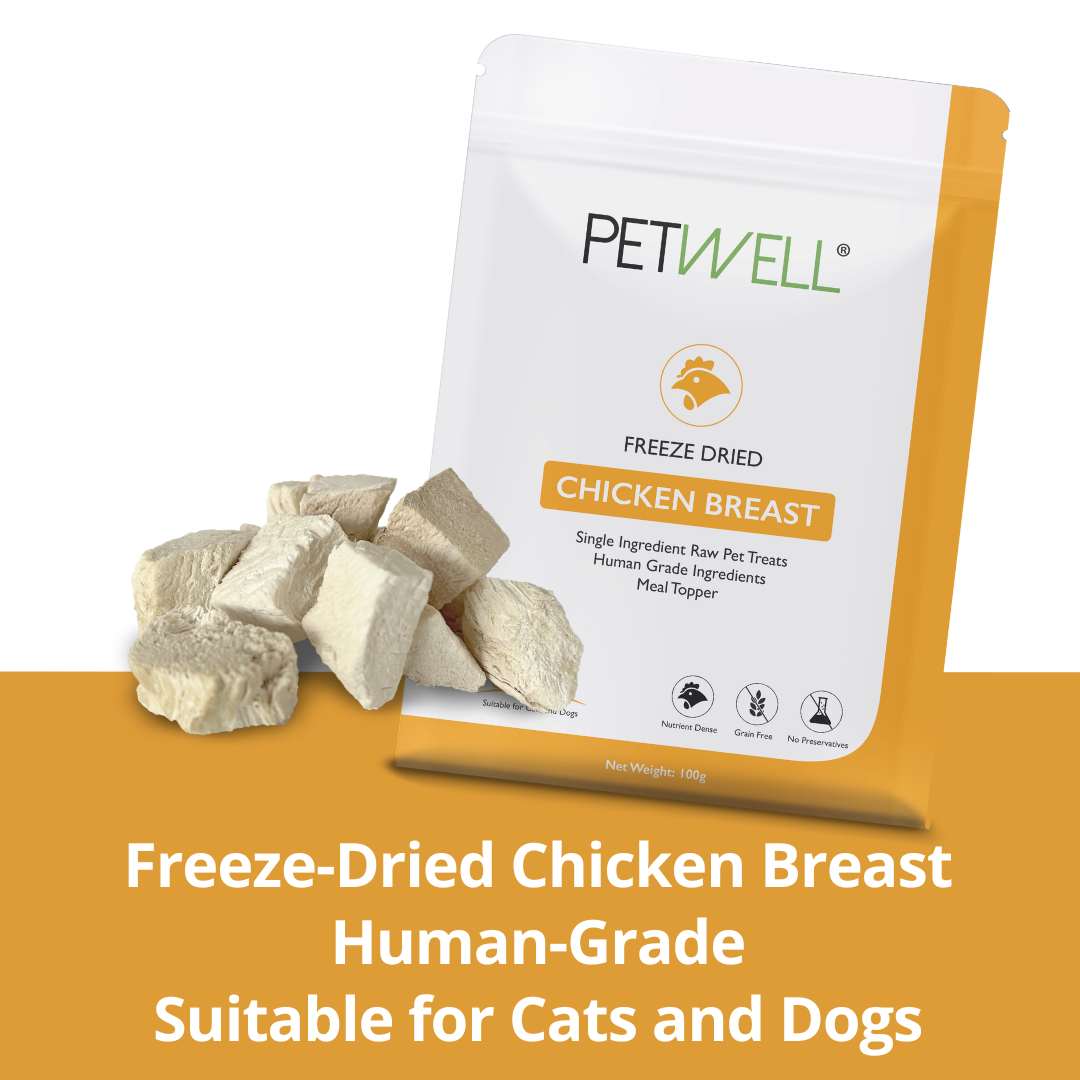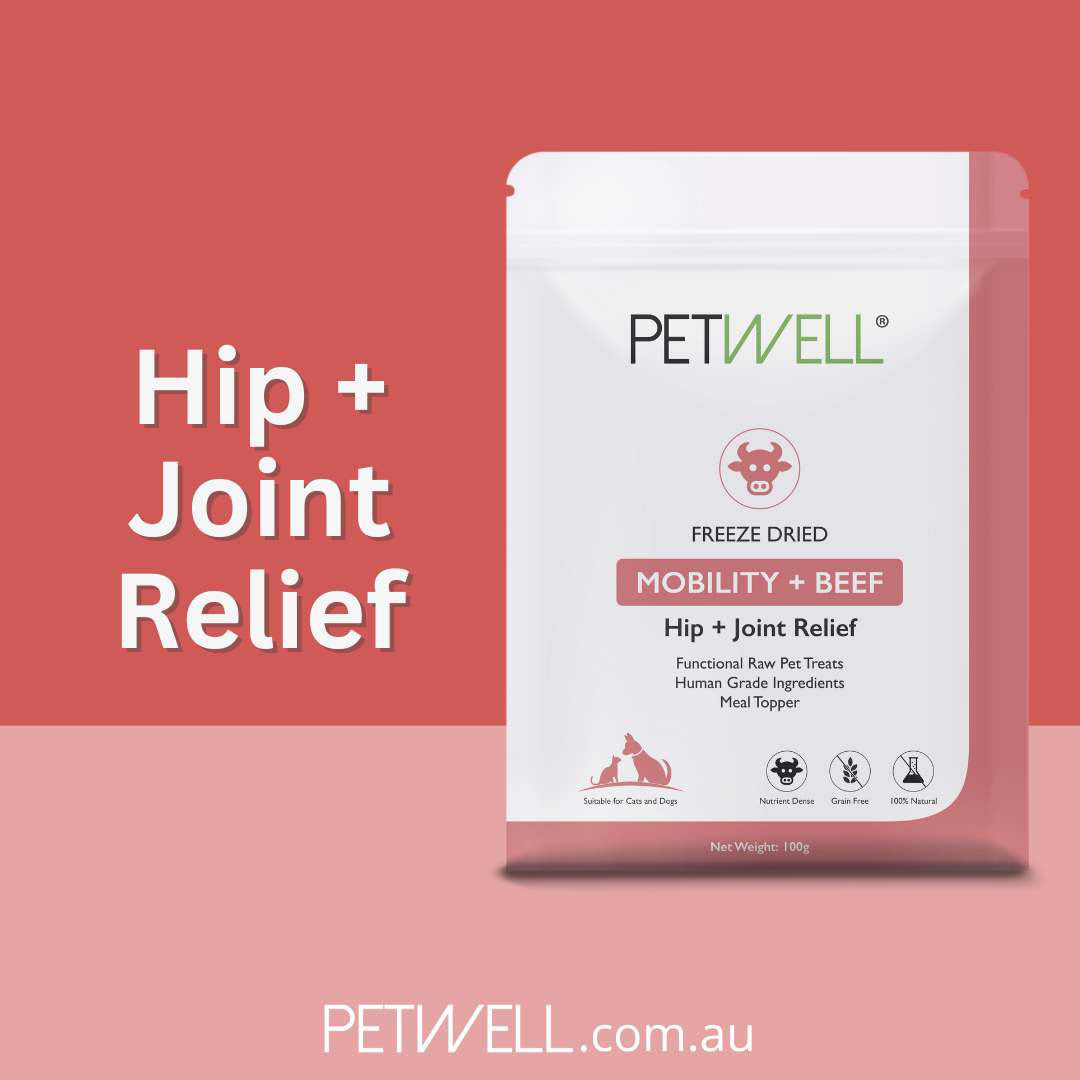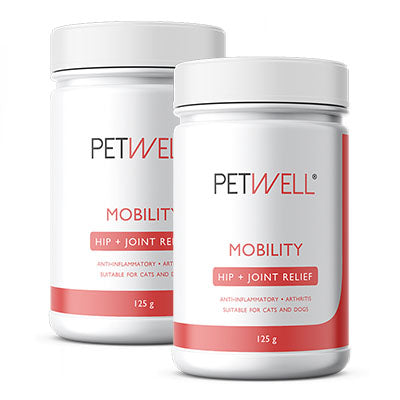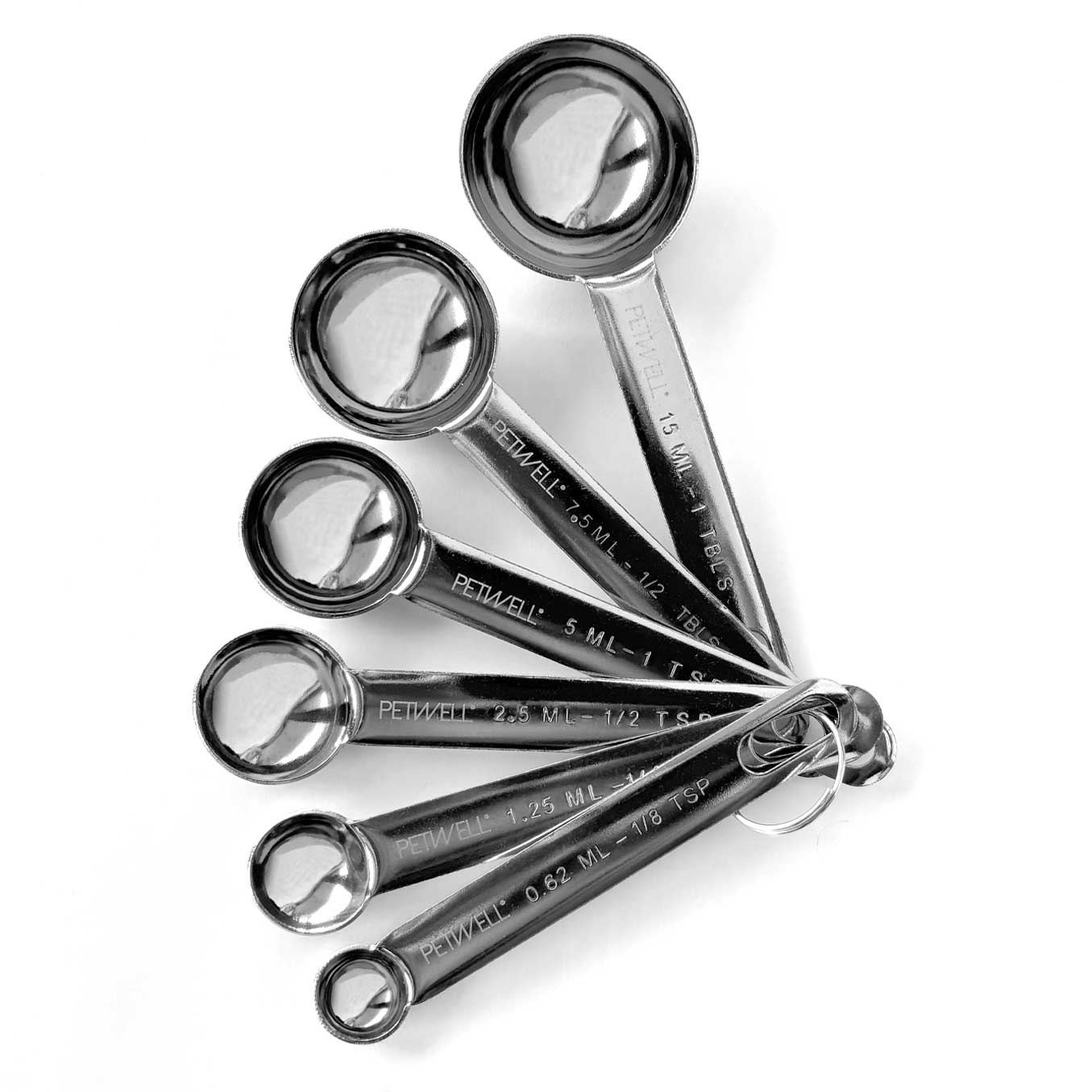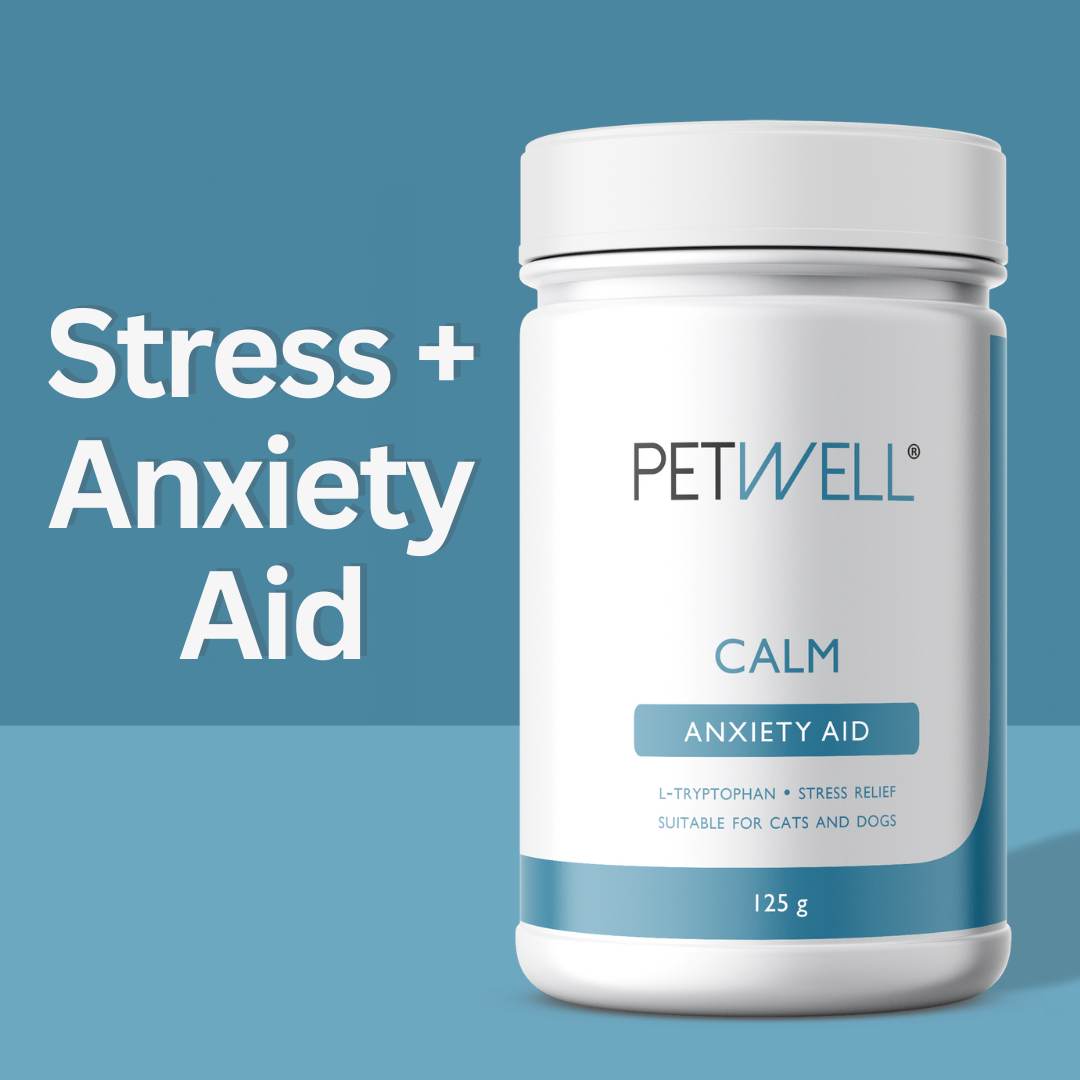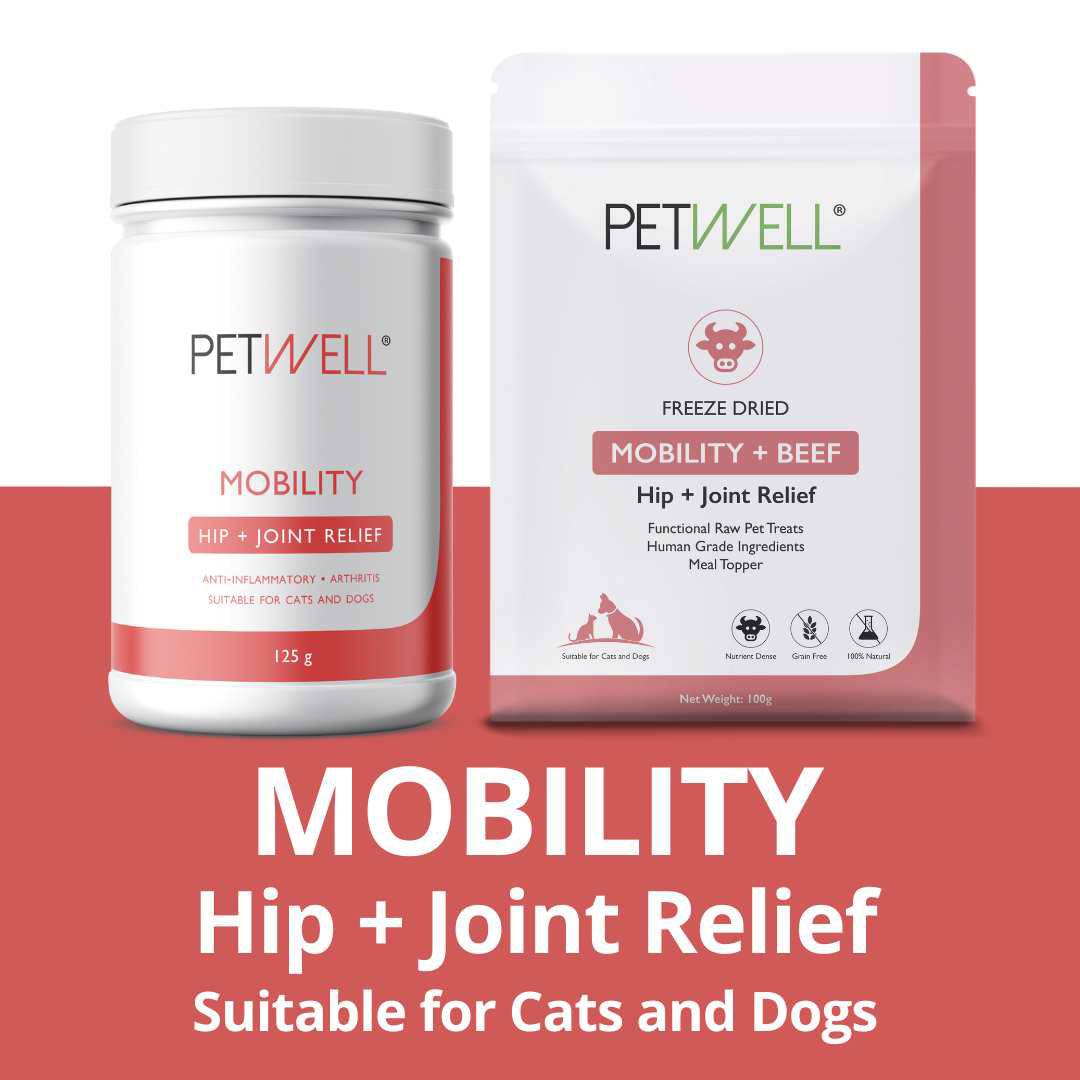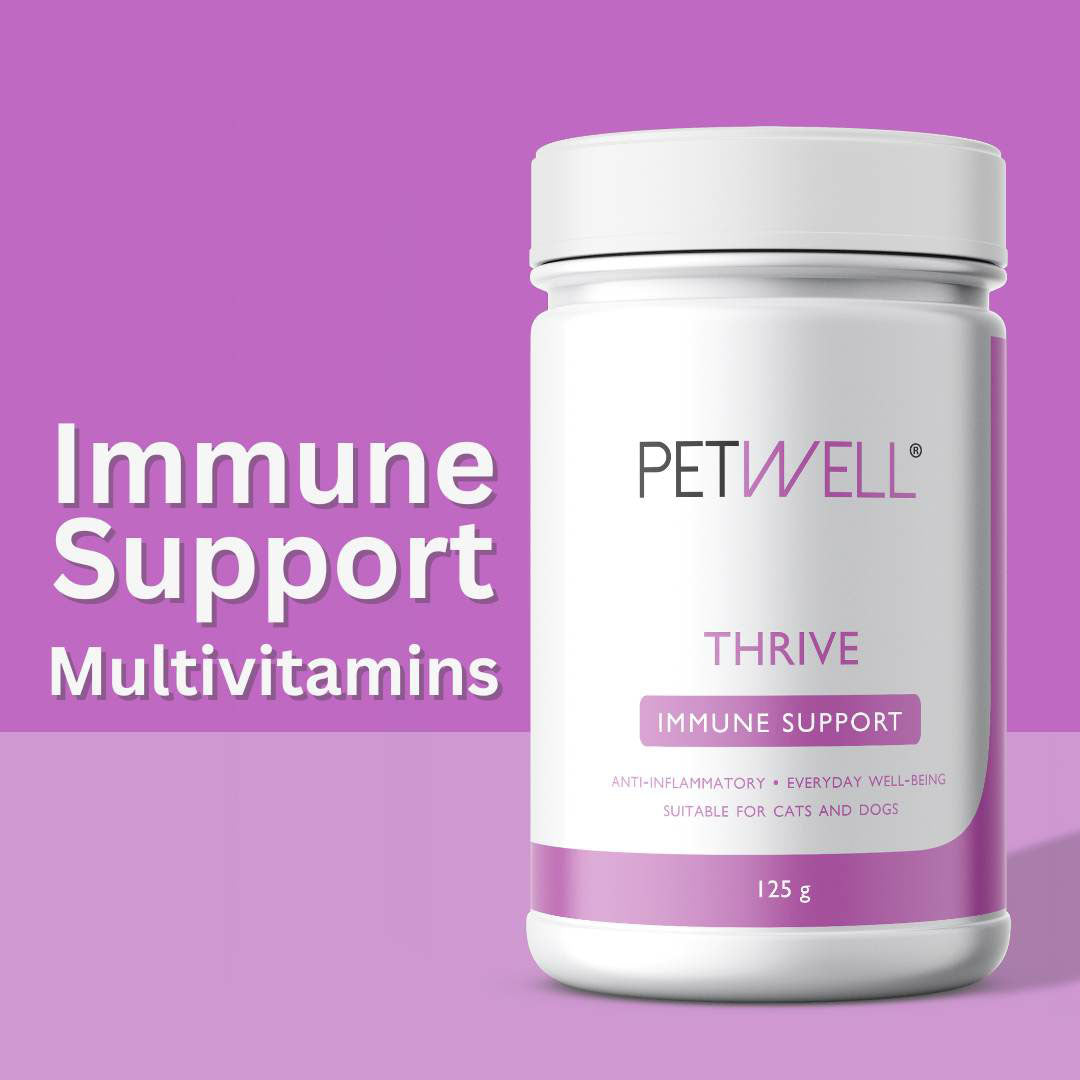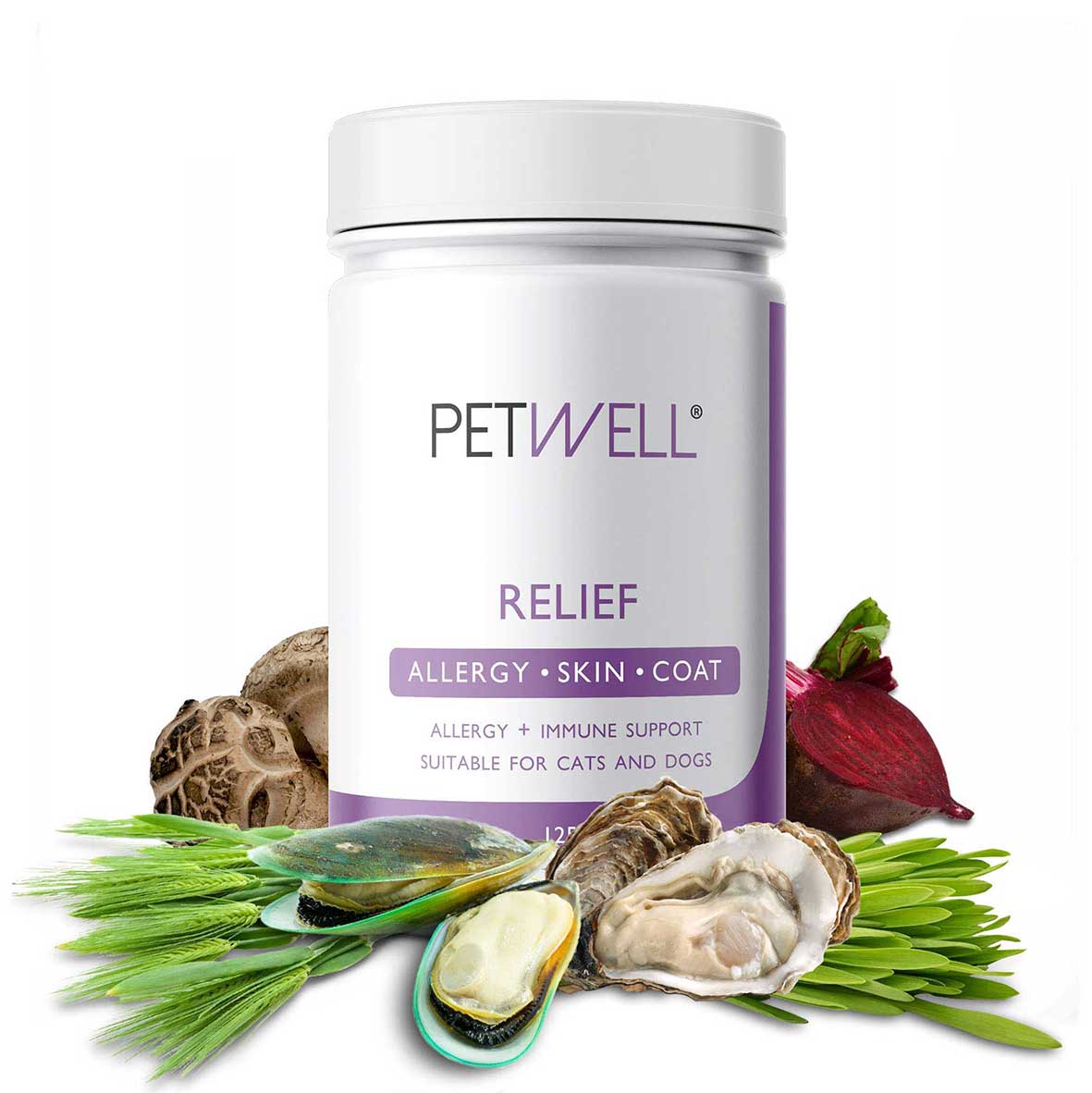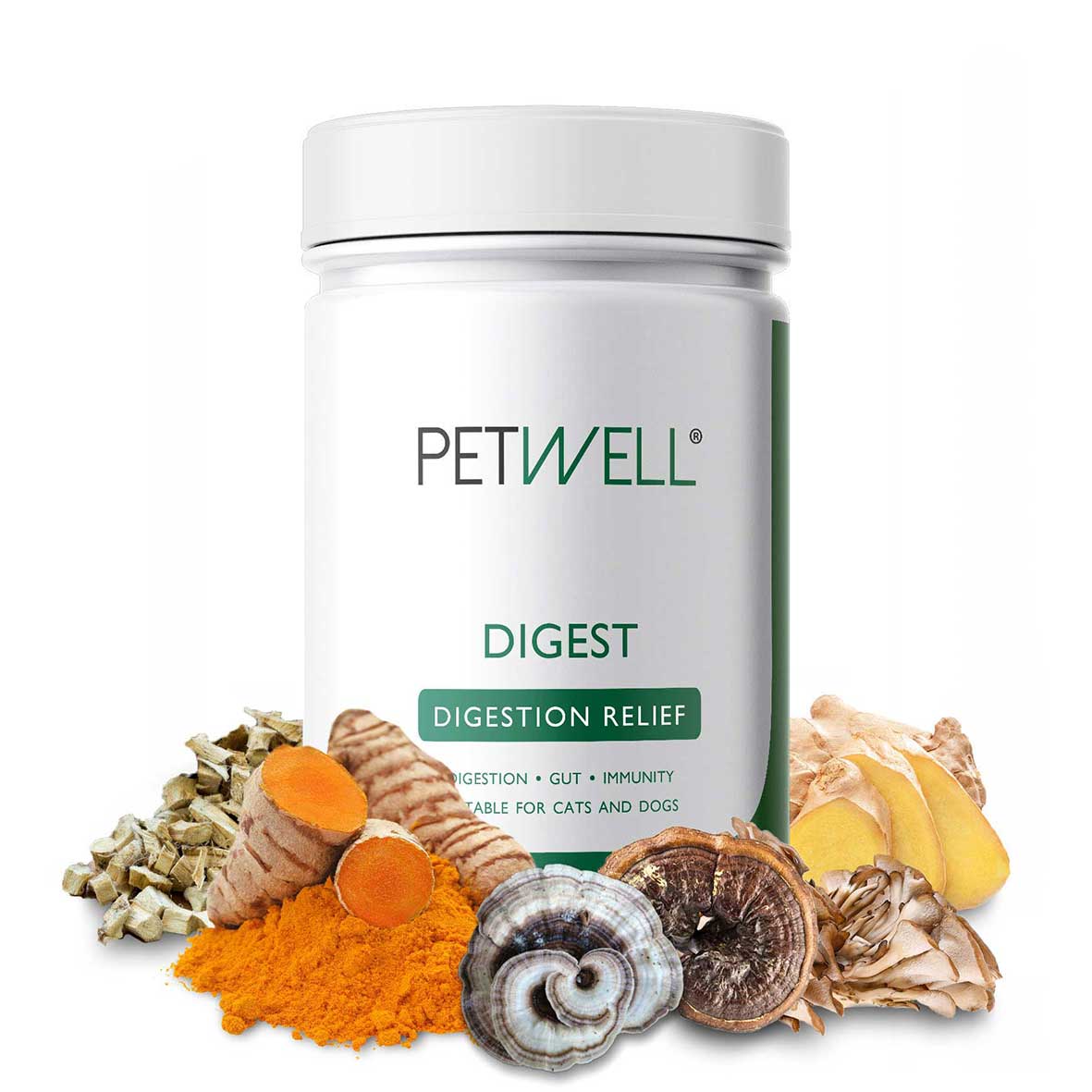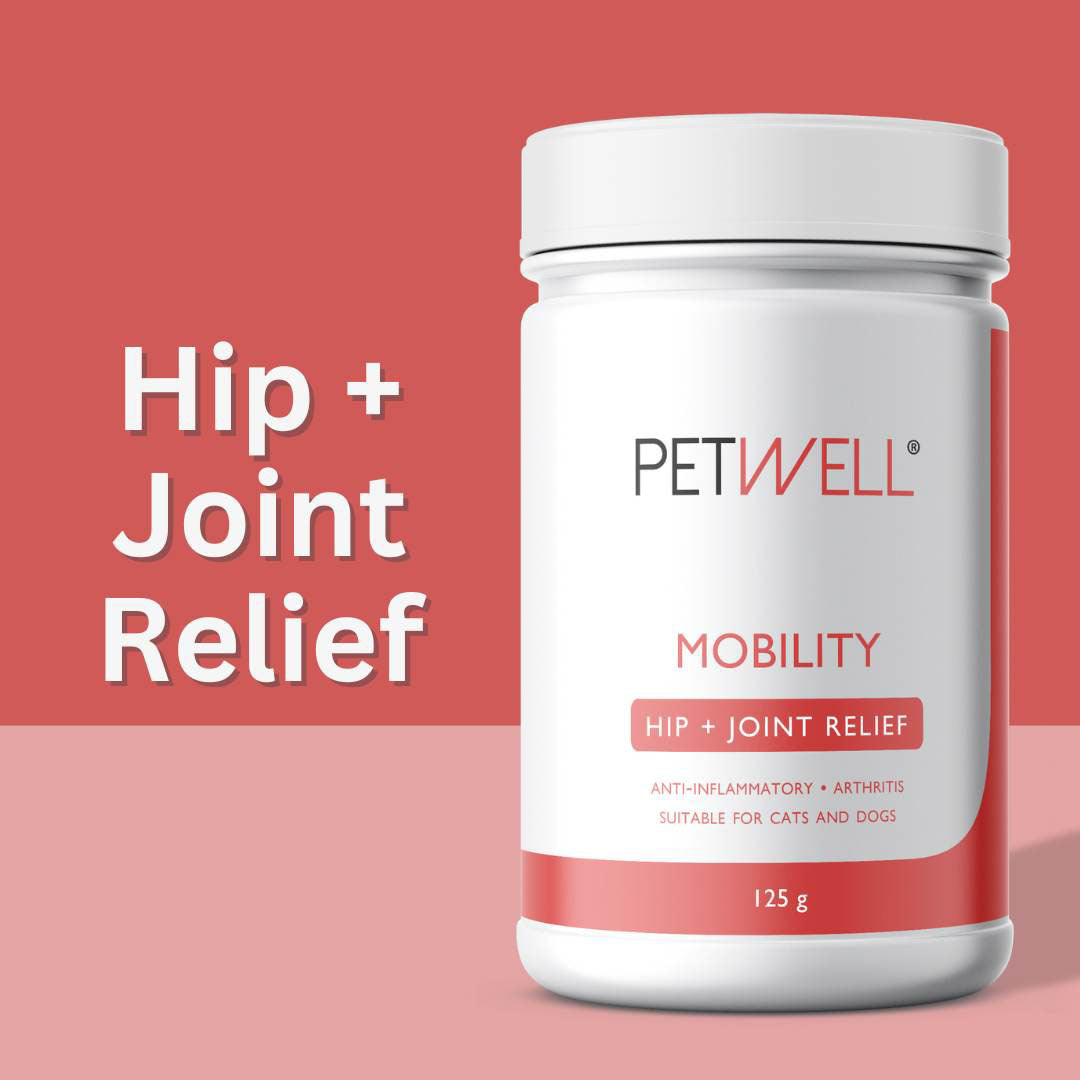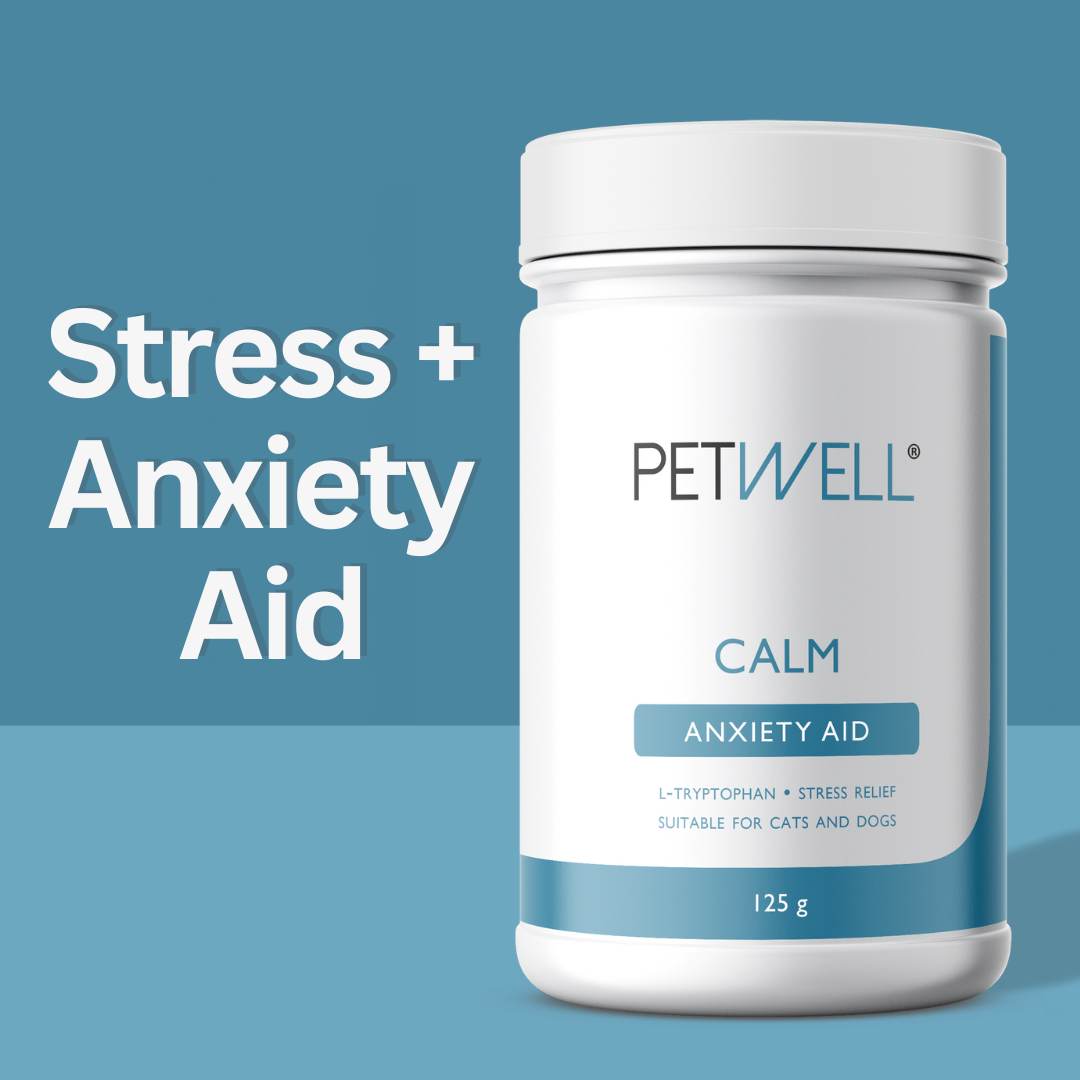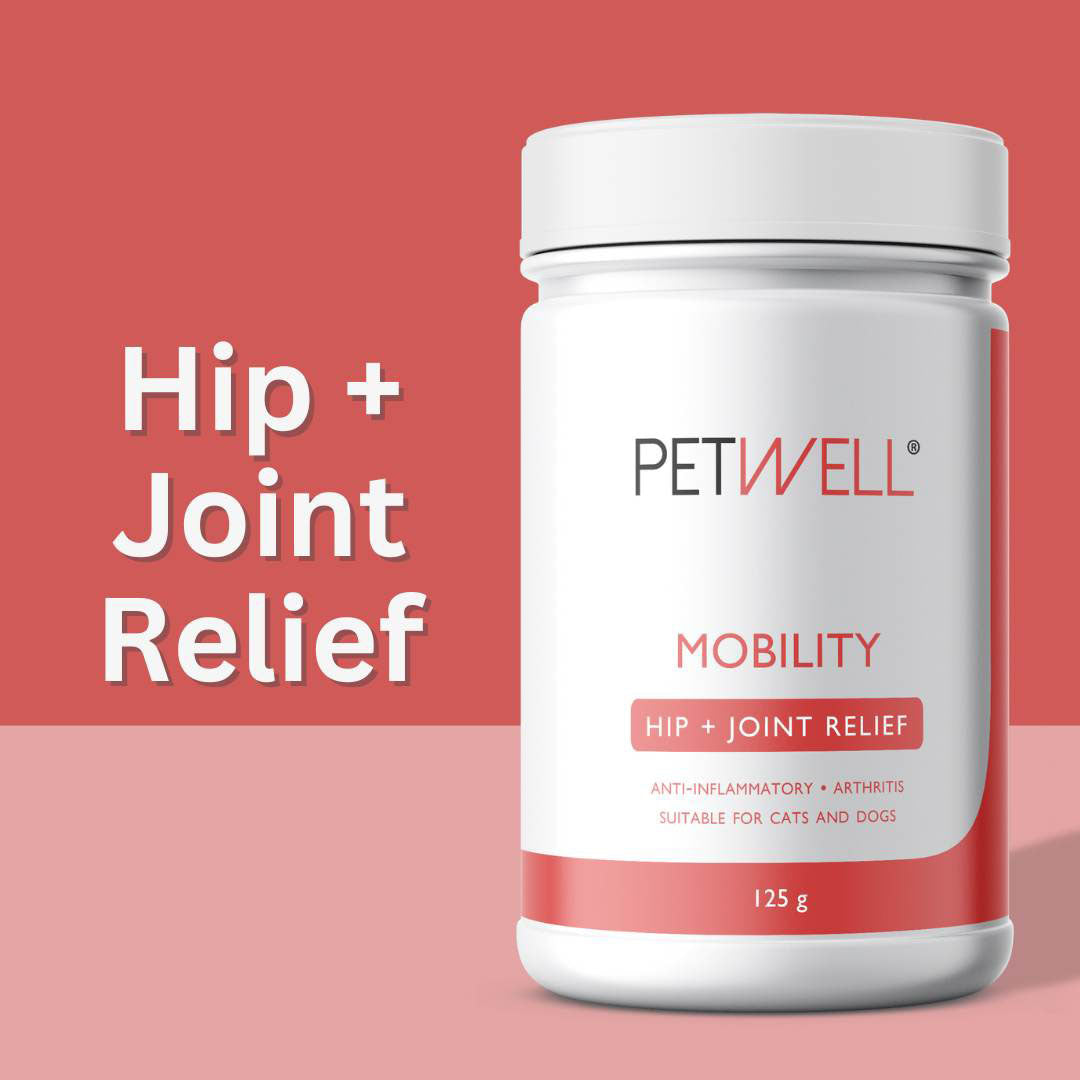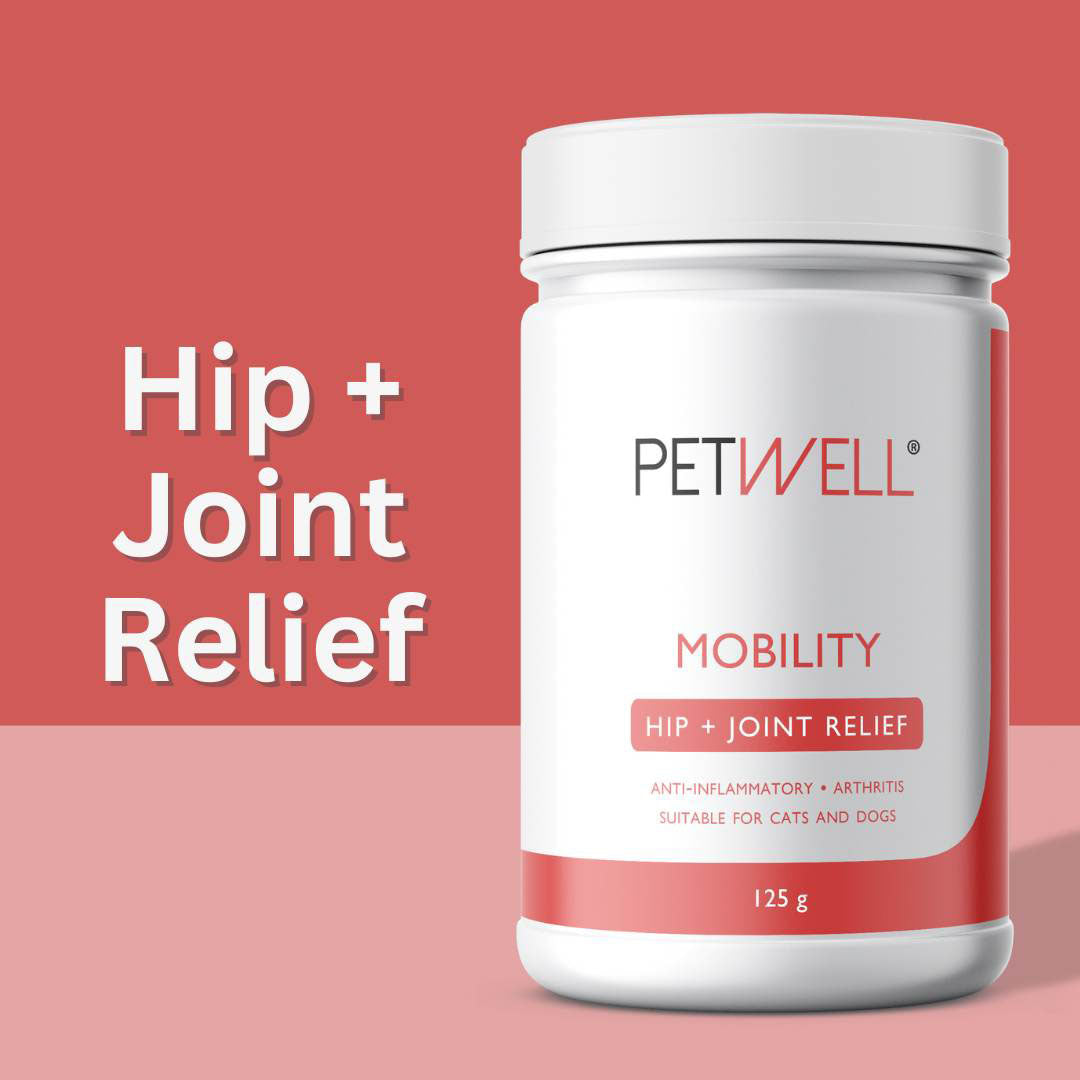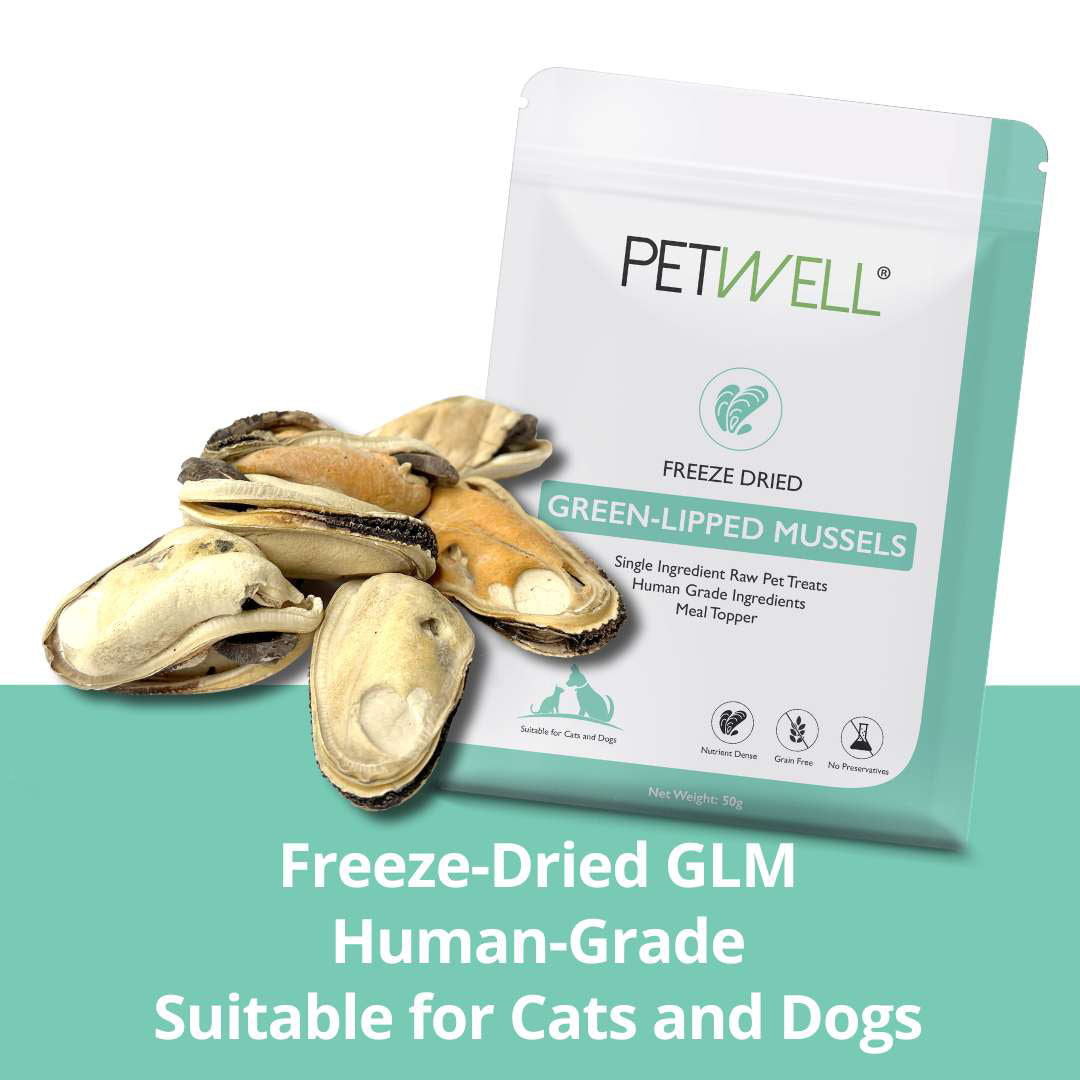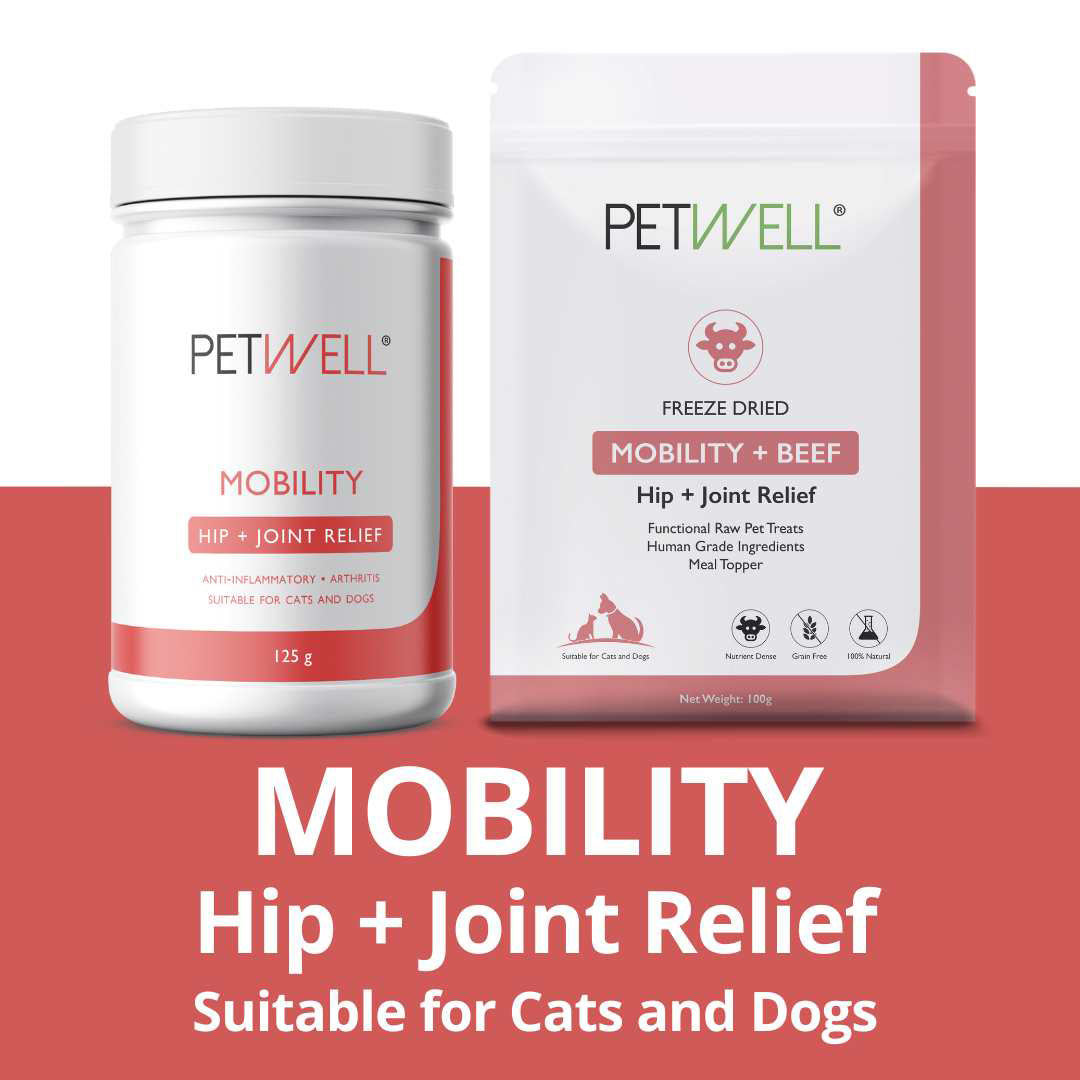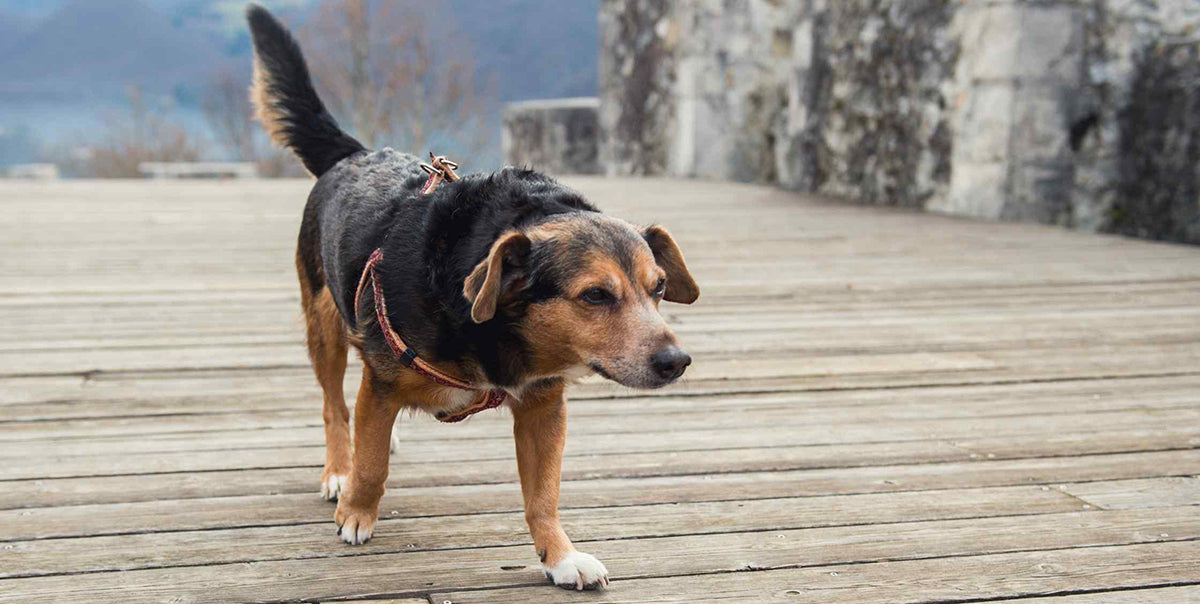Safely exercising senior dogs is important because as dogs age, their exercise needs change, but staying active remains vital for their overall health. Gentle, consistent exercise can support joint mobility, prevent weight gain, and improve their mental well-being.
In this guide, we’ll explore safe ways to keep your senior dog active, what exercises are best for them, and how PetWell’s products can enhance their health during their golden years.
Why Exercise is Important for Senior Dogs
Maintains Joint Health and Mobility
As dogs age, they’re more prone to stiffness and arthritis. Regular, low-impact exercise helps keep their joints lubricated and reduces discomfort. PetWell’s MOBILITY Hip + Joint Relief supplement is an excellent addition to your senior dog’s routine, providing natural anti-inflammatory support for healthier joints.
PetWell MOBILITY Hip + Joint Relief supplement and functional treats are packed with a powerful blend of anti-inflammatory ingredients. Including naturally occurring omega-3 fatty acids, glucosamine, and chondroitin, these products are designed to support your pet's joint health.
Whether your pet is ageing, active, or simply needs that extra boost, our MOBILITY supplement and functional treats provide the ultimate solution. Give them MOBILITY today.
Prevents Weight Gain
Older dogs are often less active and burn fewer calories, making them more prone to weight gain. Carrying excess weight can exacerbate joint problems and strain the heart. Gentle exercises like walking or swimming help maintain a healthy weight.
Boosts Mental Well-Being
Staying active isn’t just good for the body—it’s great for the mind too! Regular movement helps combat boredom, reduces anxiety, and promotes overall happiness in senior dogs. For those who experience anxiety, especially during new routines, PetWell CALM supplement can provide additional comfort.
The Best Types of Exercise for Senior Dogs
Gentle Walks
Daily walks are the perfect low-impact exercise for senior dogs. Stick to flat surfaces, avoid extreme weather, and pay attention to their pace. A slow 15–20 minute walk can work wonders for their mobility and mood.
Swimming
Swimming is ideal for older dogs with arthritis or joint pain because it’s a low-impact activity that builds strength and improves circulation without putting stress on their joints.
Stretching and Balance Exercises
Simple stretches or exercises like having your dog balance on a soft surface can improve their flexibility and stability. These are especially helpful for dogs with reduced coordination.
Scent Games
Engage your senior dog’s mind by hiding treats, like PetWell’s freeze-dried single-ingredient treats, around the house or garden and encouraging them to sniff them out.
As dogs age, their bodies become more susceptible to various health issues, particularly joint problems, and mobility challenges.
Tips for Exercising Senior Dogs Safely
Adjust Exercise to Their Needs
Every senior dog is different. Monitor their energy levels, joint health, and stamina to determine the right type and duration of exercise. Shorter, frequent sessions are often better than long, strenuous activities.
Warm-Up and Cool Down
Just like humans, senior dogs benefit from warming up before exercise and cooling down afterward. Gentle stretching or a slow-paced walk before and after their main activity can prevent stiffness and injuries.
Watch for Signs of Discomfort
Signs like excessive panting, limping, or lagging behind during walks could indicate that your dog is overexerting themselves. Always stop if they seem tired or in pain.
Use Supplements for Added Support
If your dog is slowing down due to arthritis or joint pain, supplements like PetWell MOBILITY can help. These treats contain natural ingredients that promote joint health, making exercise more comfortable for your senior dog.
Overcoming Common Challenges
Lack of Motivation
Senior dogs may seem less enthusiastic about exercise, but they often enjoy low-energy activities like sniffing games or short strolls in new environments. Offering rewards, like PetWell’s CALM + LAMB treats, can motivate them while providing added anxiety relief.
Health Conditions
Conditions like arthritis, heart disease, or reduced vision can make exercise more challenging. Consult your vet to design an exercise plan tailored to your dog’s specific health needs.
Bad Weather Days
If it’s too hot or cold to exercise outside, bring activities indoors. Use toys or create an obstacle course with soft furniture to encourage movement.

Benefits of Combining Exercise with the Right Nutrition
Exercise works best when combined with proper nutrition and targeted supplements. Senior dogs often benefit from natural products that address their age-related challenges:
- For Joint Health: PetWell’s MOBILITY treats support aging joints, making movement easier and more enjoyable.
- For Digestive Support: Older dogs can experience slower digestion. Adding PetWell DIGEST gut support to their routine can improve gut health and ensure they’re absorbing the nutrients they need.
- For Anxiety Relief: Some senior dogs may feel anxious about new activities or routines. PetWell’s CALM supplement can help them feel more secure.
In Summary
Exercise is just as important for senior dogs as it is for younger ones, but their routines need to be adapted to suit their age and health. Gentle, consistent movement can keep them feeling young at heart while improving their physical and mental well-being. By combining safe exercises with targeted supplements like PetWell's range, you can help your senior dog thrive during their golden years.
Disclaimer: The entire contents of PetWell emails and website are not to be taken as medical advice. The team at Pet Squad Pty Ltd trading as PetWell encourages you to make your own pet healthcare decisions based on your research and in partnership with a qualified pet healthcare professional.

